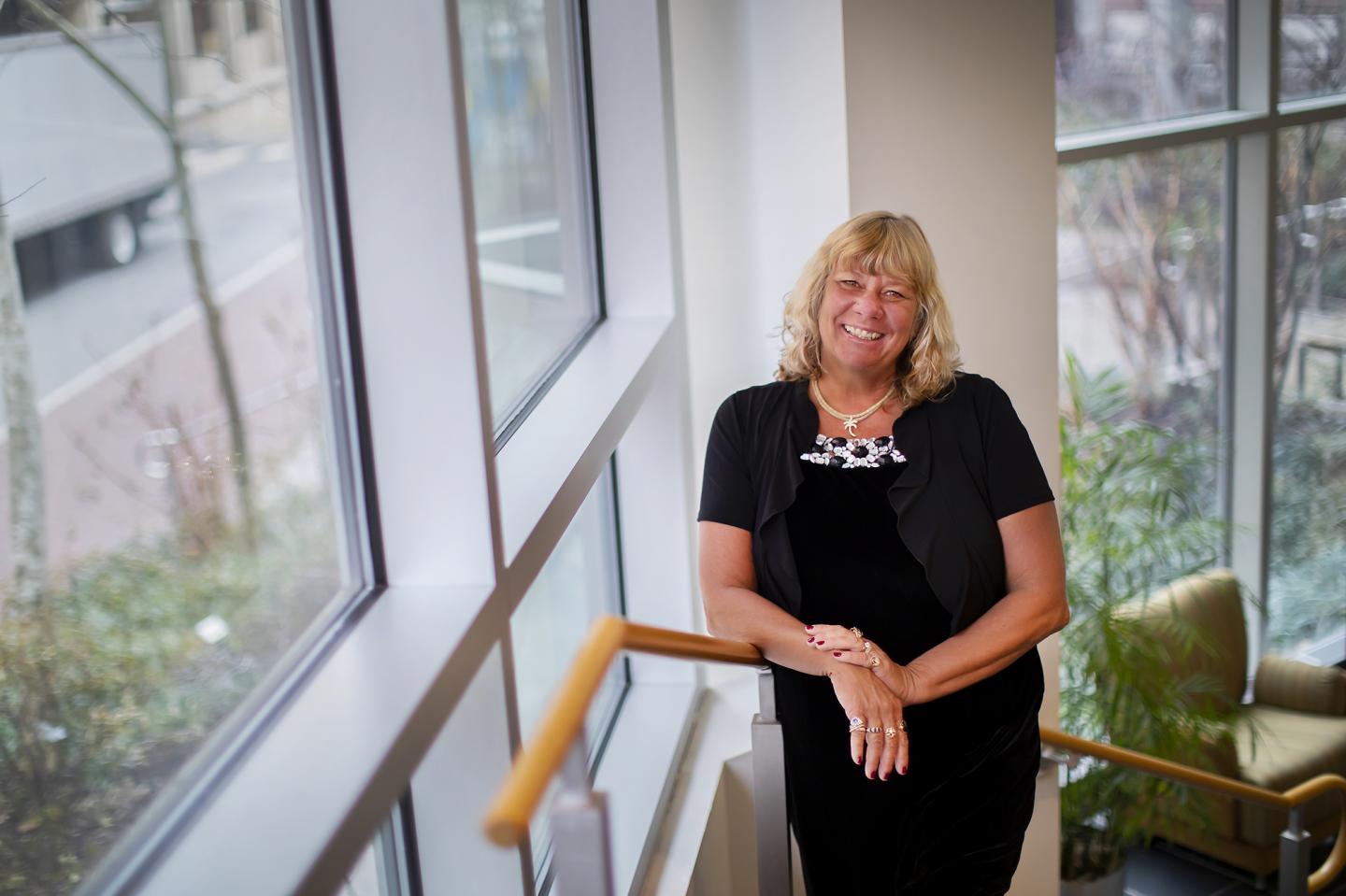
IMAGE: Diane L. Spatz, PhD, RN-BC, FAAN, the Helen M. Shearer Term Professor of Nutrition at University of Pennsylvania School of Nursing view more
Credit: Eric Sucar, Univ. of Penn. Communications
PHILADELPHIA (April 5, 2019) -Breastfeeding is an accepted practice for millions of women worldwide and strongly endorse by the World Health Organization. To provide appropriate counseling about human milk and breastfeeding, it is important to understand cultural beliefs and customs related to the practice.
Understanding Orthodox Jewish customs regarding breastfeeding is especially important for health care providers because the Orthodox population in the United States is growing. Orthodox women get married younger and have twice as many children as non-Orthodox Jews. Some of these families are at higher risk for conceiving infants with genetic disorders, who may require special care and continued hospitalization after the mother has been discharged.
In a new article published in The American Journal of Maternal/Child Nursing, nurse researchers examine Orthodox Jewish practices related to the provision of human milk and breastfeeding for a sick newborn. The article guides nurses in providing culturally competent lactation education, and evidence based guidance to meet the individual needs of each Orthodox Jewish infant and family. It is critical for the family to have conversations with their Rabbi ideally before delivery or at time of birth to determine needs for saving colostrum and milk, as well as, milk expression during Shabbat or religious holidays.
“Personalized, culturally and religiously tailored care, education, and counseling can ensure that Orthodox mothers are able to meet their personal breastfeeding goals even if their infant requires hospitalization at birth,” says Diane L. Spatz, PhD, RN-BC, FAAN, the Helen M. Shearer Term Professor of Nutrition at University of Pennsylvania School of Nursing (Penn Nursing), one of the article’s co-authors.
###
The article, Breastfeeding Guidance for Orthodox Jewish Families When Newborns Require Special Care and Continued Hospitalization, is available online. It was co-authored by Laura M. Candelaria, PhD, MS, RN, FNP, of the Molloy College Hagan School of Nursing; and Toby Bressler PhD, RN, OCN, of the Mount Sinai Health System.
About the University of Pennsylvania School of Nursing
The University of Pennsylvania School of Nursing is one of the world’s leading schools of nursing. For the fourth year in a row, it is ranked the #1 nursing school in the world by QS University and is consistently ranked highly in the U.S. News & World Report annual list of best graduate schools. Penn Nursing is currently ranked # 1 in funding from the National Institutes of Health, among other schools of nursing, for the second consecutive year. Penn Nursing prepares nurse scientists and nurse leaders to meet the health needs of a global society through innovation in research, education, and practice. Follow Penn Nursing on: Facebook, Twitter, LinkedIn, & Instagram.
Disclaimer: AAAS and EurekAlert! are not responsible for the accuracy of news releases posted to EurekAlert! by contributing institutions or for the use of any information through the EurekAlert system.

